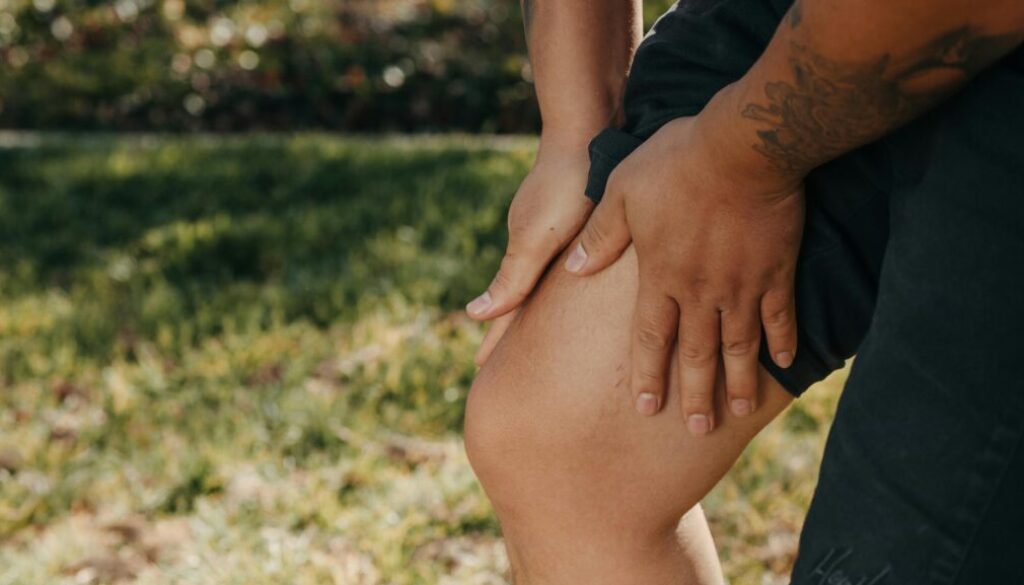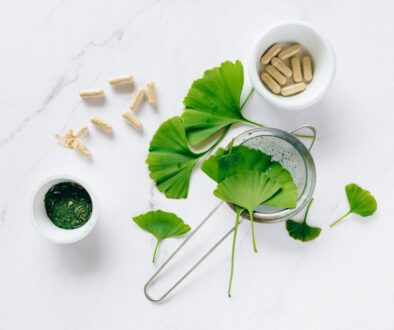6 Daily Habits That Make Joint Pain Worse

Today, we will know the joint pain causes. Hopping around with joint aches may be tough, but it won’t have to control your life. Of course, age and genetics come into play, but so much of the pain we feel is brought on by our daily routines. And the best part? Rearranging these tiny habits can spell major relief.
Think about it: nearly 54 million US adults live with arthritis, and many more deal with stiff, aching joints every day. What if some of the automatic habits you’re performing are actually making the problem worse? If you determine what those habits are, you can start making adjustments to feel better and move better.
Consuming Inflammatory Foods
That morning donut or that afternoon soda might they may seem innocuous at first glance, but they can actually present a serious concern for your joints. Highly processed foods, sugary beverages, and excessive consumption of red meat are known to contribute to inflammation within the body, and your joints are not an exception. Awareness of these food triggers is key to knowing the causes of joint pain.
Inflammation is your body’s instinctive reaction to damage, but when it is persistent, it hurts and harms. It’s like a fire that never extinguishes.
One of my closest friends used to wake up stiff in her knees every morning. She decided to cut out her sugary coffee drinks and junk food. After a fortnight, she observed a remarkable transformation. The pain, so common, started vanishing.
Food that tends to worsen joint pain is:
- Sugary foods like candy and sodas.
- Trans fats are in many packaged and fried foods.
- Excessive processed and red meat.
As a substitute, incorporate more anti-inflammatory foods into what you consume. Fatty fish like salmon, green leafy foods, berries, and nuts are good examples. These foods give your joints the good stuff they need to thrive. Even so, knowing which foods to steer clear of is still a means of identifying joint pain causes.
Staying Still for Too Long
Our hectic modern life normally means we’re stuck at a desk, on the couch, or in a vehicle for hours. That’s one of the worst things we can do for our joints. When you’re not getting on and off your joints, they get less of the natural lubricating fluid that allows them to slide effortlessly. Your muscles become weak, and suddenly, everything starts to feel stiff. Joint aches, like inactivity, can be easily avoided with simple changes.
I definitely felt this after a completely busy work week. I barely left my desk. By the end of Friday, my hips were tight and frozen, and my knees creaked when I got up. A short 20-minute walk did a lot to correct it, but it took a few days of going around to normalize.
Excessive sitting can affect:
- Your hips become stiff and tighten your lower back.
- Your knees can stiffen due to inactivity.
- Your shoulders and neck, if your posture is poor at your desk.
Try to stand up and walk about for a few minutes every hour. You can stretch while working at your desk, walk about while on the phone, or even just march in place. Anything is better than sitting for long periods of time, which is one of the primary causes of joint pain.
Having Bad Posture
Slouching to look at your phone or leaning over your desk puts a tremendous amount of unnecessary stress on your joints. It makes certain joints work way too hard, while others get weakened. Joint pain due to this imbalance is one of the lesser-known reasons.
My aunt had neck and shoulder pain for years. Her physical therapist said it was from leaning forward with her head to type on a computer. After some exercises and trying to sit up straight, she felt much relief.
Pain-causing posture difficulties:
- “Text neck” is from leaning your head down to look at your phone.
- Hunched-up, rounded shoulders.
- Sloping your pelvis forward affects your hips and back.
Place a reminder on your phone to monitor your posture every hour. Sit or stand straight, imagining that a string is pulling the top of your head toward the ceiling.
Being Stressed Out All the Time
Stress not only wreaks havoc on your brain; it can worsen your body pain, too. When you are stressed, your body releases hormones like cortisol, which can trigger inflammation and cause your muscles to tighten up. Stress also goes hand in hand with inflammation, one of the leading culprits for joint pain.
I felt this when I was struggling at work. My shoulders and neck were getting really tight and sore. The tension was turning into real physical pain. I started doing some mindfulness exercises and short meditations daily, and it helped a lot in a week.
Stress can:
- Impact inflammation in your body.
- Make your muscles contract around your joints.
- Play around with your sleep, which is when your body repairs itself.
Experiment with things like yoga, deep breathing, or simply going for a walk to wind down.
Not Drinking Enough Water
Your joints have a special lubricant fluid in them that lets them move smoothly, and it’s mostly water. If you don’t consume enough water, you have less of this fluid, so there is more friction and discomfort in the joints. One of the less well-known but significant joint pain causes is dehydration.
I learned this the hard way during a hike one summer. I got very dehydrated, and the next morning, my whole body ached. Once I had consumed a great deal of water, the stiffness went away. It was a valuable lesson in the necessity of water.
Attempt to consume about eight glasses of water daily. If you’re working out or it’s warm outside, you’ll need more.
Smoking and Excessive Drinking
Smoking and excessive drinking both have the potential to hurt your joint tissue. Smoking affects blood flow, so your joints don’t get the nutrients they need. Alcohol may interfere with how you heal. These are not healthy habits that are among the causes of joint pain you can modify to be healthier.
These habits can also weaken your bones and wear out the cartilage in your joints faster. If you are a heavy smoker or drinker, you are making it a whole lot harder for your joints to be in good shape.
7 Move Free Joint Health Tips as You Get Older
Ready to Feel Better?
The good news is, you don’t have to make huge, radical changes to make an impact. Start small!
- Move a little more: Go up the stairs, park farther from the door, or just stand up and stretch every hour.
- Drink more: Have a water bottle handy so you won’t forget to drink.
- Eat smarter: Swap one processed snack with some fruit or nuts.
While these changes in lifestyle are the best basis for healthy joints, there are times when you need that extra bit of help. Balmorex Pro is a cream made out of 27 natural elements to give you specifically targeted relief from joint and muscle aches. It contains such things as arnica oil to alleviate pain and aloe vera to soothe. Individuals get relief quite rapidly after applying it. here’s a blog of Balmorex Pro Review.
You can make your joints feel better. Start by committing to one small habit this week. Little by little, it will all add up, and your body will thank you in the end. If you’ve been searching for ways to manage joint pain causes, these tips are a great place to start.
If you’d like to give your joints an extra bit of support, give Balmorex Pro a try and see the relief for yourself.
Frequently Asked Questions (FAQs)
1. Does menopause lead to pain in the joints?
Yes, menopause can lead to pain in the joints. Changes in hormones, particularly the decrease in estrogen levels, may be the cause of stiffness, swelling, and pain in the joints.
2. Why does too much tiredness and pain in the joints occur?
Intense joint discomfort and extreme tiredness may stem from a variety of underlying factors, including autoimmune conditions like rheumatoid arthritis, chronic fatigue syndrome, vitamin deficiency, or stress and insomnia. It is always best to visit the doctor to determine the underlying cause.
3. Does menopause induce joint pain?
Yes, joint pain is a common menopause symptom. The reduction in estrogen can cause inflammation. A decrease in joint lubrication can lead to discomfort and rigidity, causing pain and limiting mobility.
4. Can stress cause joint pain?
Yes, stress can cause joint pain. When stressed, the body secretes stress hormones that can increase inflammation and tension in muscles and joints, resulting in long-term pain.



